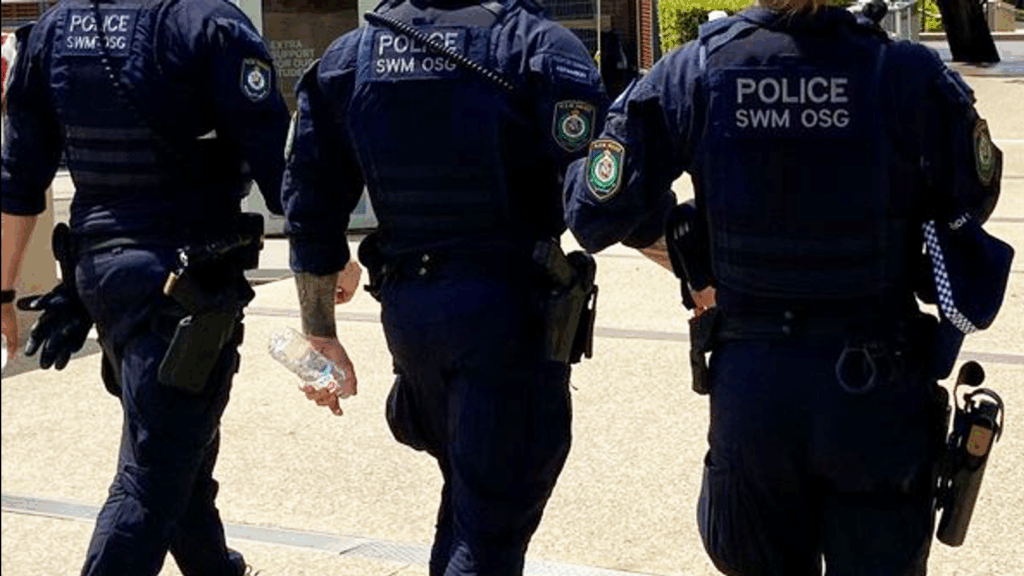
Backed by the Albanese Labor government, the Australian Federal Police (AFP) has established new National Security Investigations (NSI) teams to target groups and individuals allegedly threatening Australia’s “social cohesion.” These teams began operations in Sydney, Melbourne, and Canberra in September, as part of the AFP’s Counter Terrorism and Special Investigations Command.
This initiative marks a significant shift in the AFP’s focus, aiming to utilize its 8,000-strong force to monitor, disrupt, and prosecute political activities deemed dangerous to what the government describes as the country’s “social fabric.” This term, as used by the recently appointed AFP chief Krissy Barrett, essentially refers to the existing capitalist order in Australia.
Expanding the Scope of Security Measures
Officially, the NSI teams will collaborate with the Australian Security Intelligence Organisation (ASIO) and state and territory police forces to provide a nationally coordinated, intelligence-led response to security threats. However, terms like “social cohesion” and “security threats” are deliberately broad, extending far beyond traditional definitions of terrorism or politically-motivated violence.
The announcement comes amid echoes of the Trump administration’s use of the term “antifa” to target opposition, particularly left-wing groups. The AFP’s statement highlights the wide scope of NSI operations and their collaboration with the “Five Eyes” surveillance network, which includes the UK, Canada, and New Zealand, alongside the US.
“Many groups of concern are dispersed across Australia and, in some cases, connected to international groups of concern,” the statement declared. “The AFP will attack these groups on a global level through operations, capabilities, and relationships with the international law enforcement intelligence community—including the Five Eyes Law Enforcement Group.”
A National Security Agency in Action
Traditionally, the AFP’s role has been federal law enforcement, while state and territory police handle most criminal cases. However, the AFP is increasingly becoming a central political policing instrument. At a recent Senate estimates hearing, Barrett described the AFP as a “national security agency.”
In her media appearances, Barrett emphasized the AFP’s focus on “current and emerging groups who are eroding our country’s social fabric by advocating hatred, fear, and humiliation.” She noted that while these activities may not meet the threshold of terrorism, they could escalate to politically-motivated violence or hate crimes.
Government Support and Broader Implications
This initiative is directed by the Labor government, with Prime Minister Anthony Albanese personally announcing Barrett’s appointment, describing her leadership as “historic.” He emphasized the AFP’s critical role in national safety, highlighting Barrett’s capability in representing the AFP on national security matters.
Barrett further stated that the AFP would focus on protecting sovereignty, democracy, social cohesion, and future prosperity, implicitly covering any opposition to the corporate elite and its parliamentary allies. She linked the NSI’s focus to the mass opposition to the US-backed Israeli actions in Gaza, noting a changing law enforcement environment in Australia.
Controversial Measures and Historical Context
Barrett insisted that recent “hate crime” laws, spearheaded by federal and state Labor governments, might need to be expanded. These laws, which can criminalize criticism of participants in the Gaza conflict, were justified by alleged antisemitic incidents, including a now-debunked caravan plot in Sydney.
Months later, the AFP and New South Wales Police admitted that the caravan plot was an organized crime operation unrelated to antisemitic terrorism. This revelation exposed the fraudulent nature of the governments’ claims, further highlighted by the NSW police admitting that many cases branded as antisemitic were misclassified.
Despite these controversies, Barrett reiterated claims of an Iranian plot involving local criminal networks to attack a Melbourne synagogue. The AFP’s statement also noted plans to use electronic surveillance and new technologies to detect extremist material and decode criminal language.
“Over the past two decades, the AFP, ASIO, and other parts of an expanding police and intelligence network have been handed extensive powers of surveillance, detention, and interrogation, mostly under the banner of the post-2001 ‘war on terrorism’,” the statement noted.
Looking Forward: Implications for Civil Liberties
The NSI announcement is not an isolated initiative. In July, the Albanese government introduced legislation to expand ASIO’s questioning powers, covering topics beyond terrorism, such as sabotage and promoting communal violence. These measures aim to suppress opposition to the government’s foreign policy and domestic security strategies.
The AFP’s NSI operation, backed by the Labor government, signals preparations for political suppression as the government aligns itself with international partners despite public opposition. This development underscores the growing threat to free speech and democratic rights in Australia.
The NSW Court of Appeal recently declared that “contempt of court” charges could be applied to anyone defying prohibitions on protests, highlighting the increasing legal constraints on civil liberties. As the AFP’s role expands, the balance between national security and individual freedoms remains a contentious issue in Australia’s evolving political landscape.







